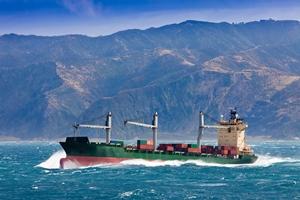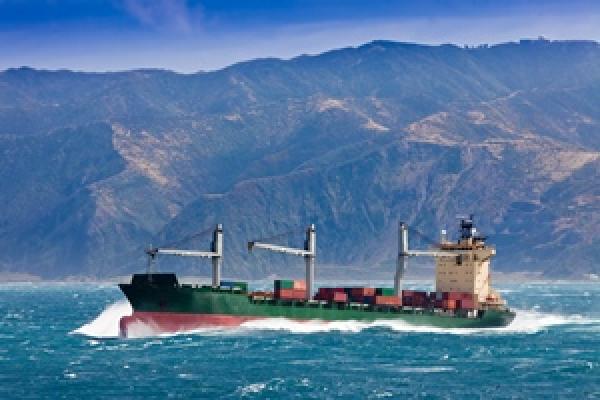
Steamship Mutual
Published: September 22, 2017

De Wolf Maritime Safety B.V. v. Traffic-Tech International Inc., 2017 FC 23
De Wolf Maritime Safety B.V. [“De Wolf”], the consignee of cargo described as “One piece zodiac and Spare Parts” stuffed into a container, contracted Traffic-Tech to carry the Zodiac on board the vessel “Cap Jackson” from Vancouver, Canada, to Rotterdam, Netherlands. The value of the cargo was €71,706.00. During the voyage, the container was lost overboard with Zodiac and all. Unbeknownst to De Wolf, the container had been carried on deck.
De Wolf promptly sued Traffic-Tech in the Federal Court of Canada alleging it failed to carry the cargo under deck, and that failure to disclose the on-deck carriage precluded Traffic-Tech from relying on any limitation of liability under the Hague-Visby Rules (“HVR”). De Wolf also argued that Traffic-Tech’s failure to disclose that the goods would be carried on deck, after a clean bill of lading was issued (implying under deck carriage), was an act of bad faith and constituted gross negligence.
Traffic-Tech brought a motion for determination of questions of law to determine whether the HVR were applicable and if so, whether it was entitled to limit liability in accordance with the Rules.
The key issue was whether the undeclared on-deck carriage of the cargo prevented the carrier from relying on the limitations applicable under the HVR. The crux of the argument centered around the meaning of the words “in any event” in Article 4(5) of the HVR. That Article states:
5. (a) Unless the nature and value of such goods have been declared by the shipper before shipment and inserted in the bill of lading, neither the carrier nor the ship shall in any event be or become liable for any loss or damage to or in connection with the goods in an amount exceeding 666.67 units of account per package or unit or 2 units of account per kilogramme of gross weight of the goods lost or damaged, whichever is the higher. (Emphasis added).
Traffic Tech relied on a decision of the English Court of Appeal in The Kapitan Petko Voivoda, Daewoo Heavy Industries Ltd et al v Klipriver Shipping Ltd et al, [2003] EWCA Civ 451 (see "Unauthorised Deck Carriage - Hague Rules - Package Limitation") holding that:
(i) In the context of the Hague Rules the words “in any event” meant “whether or not the breach of contract is particularly serious; whether or not the cargo was stowed on deck” and that “although ... the obligation to carry under deck was an extremely important obligation, it could not be said that it was ‘overriding’ in the same sense as the seaworthiness obligation”; and
(ii) Accordingly the carrier was entitled to rely on the HVR limits notwithstanding the undeclared deck carriage.
De Wolf relied on the argument set out in the late professor William Tetley’s famous text Marine Cargo Claims (4th ed. Cowansville: Les Éditions Yvon Blais, 2008) that the words “in any event” of Article 4(5)(a) “should be construed to mean that the package limitation applies where the carrier fails to prove its right to total exoneration from liability under any of the exceptions of Art. 4(2)(a) to (q)” of the HVR. Tetley’s argument relied on older Canadian, U.S. and French authorities but was in essence that undeclared deck carriage amounted to a deviation and a fundamental breach of the contract.
De Wolf further argued that The Kapitan Petko Voivoda was of limited assistance because it had been decided under the old Hague Rules which, unlike the HVR did not provide that the carrier lost its right to limit liability in the circumstances of the new Art. 4(5)(e).1 Professor Tetley himself had called the decision “unfortunate and flawed”.
The Federal Court first considered whether the cargo was in fact “goods” under the HVR. The Court held that in order for cargo not to be regarded as “goods”, the particular goods must not only be carried on deck, but also be stated in the contract of carriage as being so carried. As Traffic Tech’s bill of lading did not mention on-deck carriage the cargo fell within the definition of “goods” subject to the HVR.
With respect to the carrier’s right to limitation of liability, the Court agreed that it should stick to the ordinary meaning to be given to the terms of the treaty and followed The Kapitan Petko Voivoda - the words “in any event” mean that limitation of liability is available “in every case”. Neither the wording of Art. 4(5)(a) nor the context of the article suggest that “in any event” refers to the events listed under Art. 4(2). Also, interpreting the words “in any event” as “in every case” was consistent with Supreme Court of Canada’s earlier determination that the doctrine of fundamental breach should be laid to rest.2 De Wolf’s bad faith argument was dismissed on the facts as there was no allegation or evidence to support it.
In summary, the Federal Court concluded that the only exception to the package/kilo limitation set out in Art. 4(5)(a) of the HVR is the one provided by Art. 4(5)(e), that a carrier would lose the right to limit if damage “resulted from an act or omission of the carrier done with intent to cause damage, or recklessly and with knowledge that damage would probably result”.
It is noteworthy that The Kapitan Petko Voivoda specifically overruled an earlier case, The Chanda [1989] 2 Lloyd's Rep 494, which had held that where the cargo was damaged as a result of being wrongfully stowed on deck the carrier lost its right to limitation, and which up until then had been considered to be the leading case on this question. Interestingly, the history of cases was not discussed by the Federal Court.
This result is no doubt welcome news to carriers and their insurers and provides further clarity on the scope of the HVR. Furthermore, being consistent with prior English authority on the Hague Rules, promotes the uniformity of maritime law. Whilst speculation, it is perhaps possible that De Wolf would not have brought the claim if the bill of lading had included an appropriate liberty clause.
1 Article 4(5)(e) provides that: “(e) Neither the carrier nor the ship shall be entitled to the benefit of the limitation of liability provided for in this paragraph if it is proved that the damage resulted from an act or omission of the carrier done with intent to cause damage, or recklessly and with knowledge that damage would probably result.”
2 Tercon Contractors Ltd v British Columbia (Transportation and Highways), 2010 SCC 4 (CanLII)
Article by Eric Machum
Metcalfe & Company


